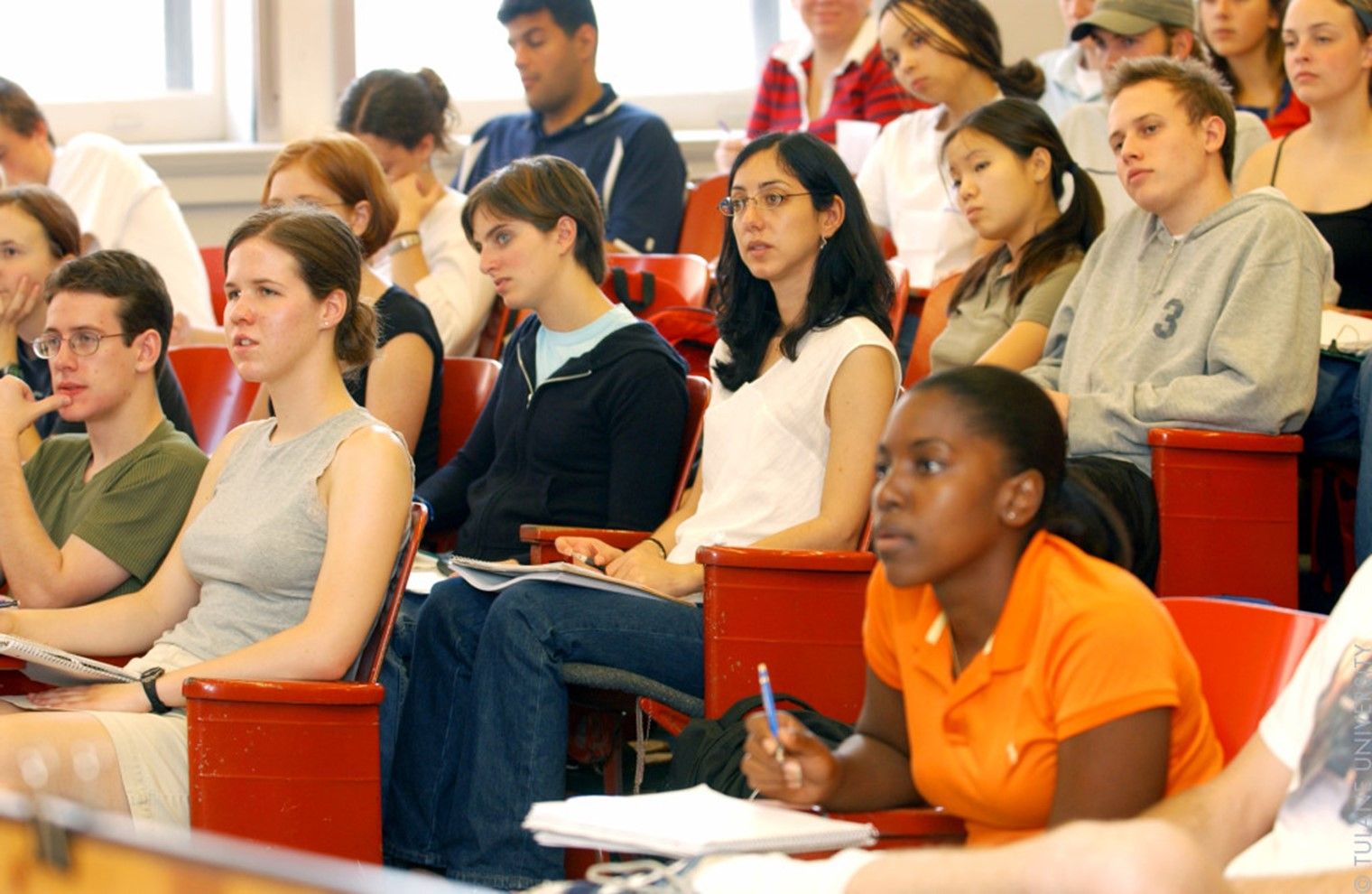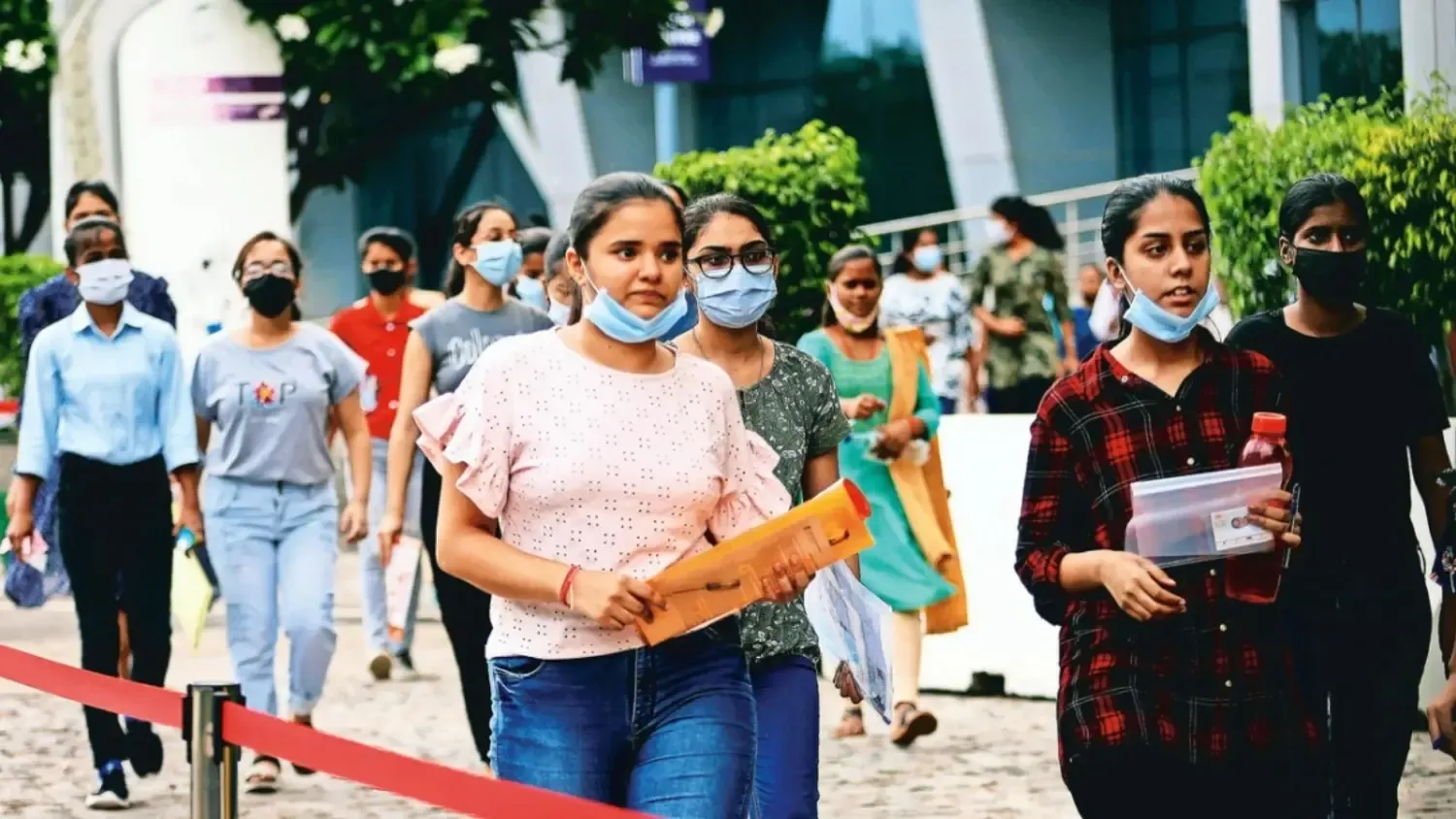Understanding Delhi University's Attendance Policy

Is it really necessary to have 75% attendance in class? Do you need to attend classes regularly? If you are confused about these questions, then you are not alone.
Most students find themselves debating the pros and cons of going to classes. After all, it's not a piece of cake, you know, travelling to and fro in the metro all day. Well, here's your official guide to understanding the awfully confusing and contentious issue that is the attendance criteria of Delhi University.
Table Of Contents:
Introduction
Delhi University has an attendance policy that requires students to attend at least 67% of classes in each semester. Students with less than 66.67% attendance may be denied the right to sit for exams, and those with less than 40% may be readmitted the following year.
Students with attendance between 40% and 66.6% can get provisional admit cards if they agree to improve their attendance. The policy is intended to promote student engagement but has been criticized for being too rigid and insensitive to the needs of diverse students. Here's everything you need to know about it!
Delhi University Attendance Policy
Minimum Attendance
- Students have to attend classes for at least 67% of the sessions in each semester.
- Those scoring below 66.67% may be disallowed from attending exams, those scoring below 40% being completely barred and at risk of facing re-admission the following year.
Take a look at the video below for a more comprehensive understanding!
Conditionally Admitted Admission Cards
- Students with an attendance record between 40% and 66.6% shall be issued provisional admit cards upon submission of a letter undertaking improvement in attendance during the subsequent semesters.
Medical Grounds
- Students having genuine medical reasons shall present a medical certificate along with a letter of undertaking to show commitment to improve attendance during future semesters.
Calculation of Attendance
- Attendance is recorded separately for theory classes, tutorials, and practicals. To be eligible for exams, a student needs to have an attendance of at least 66% in all three categories.
- The attendance is recorded semester-wise, and students are informed about their attendance before the exams. However, controversy arises when notifications regarding attendance discrepancies come out at the last moment of the examination.
Implication of Non-Compliance
Colleges have the power to implement these policies with an iron fist. For example, Shaheed Bhagat Singh College held more than 1,397 students for poor attendance till December 2023.
Student Reaction
This policy has also been a reason for student protests, arguing that strict attendance rules are affecting the academic performance of students and are not accommodating enough to handle diverse challenges faced by many, including those with disabilities or long commutes.
The Students' Federation of India has been especially vocal against such measures, pushing for more accommodating policies based on individual circumstances.

Arguments Against Attendance
- It Is Not Always Tied to Grades: It doesn't necessarily mean a thing with regard to performance in class. Many students are able to get better even without attending class.
- Attendance Does Not Guarantee Participation: They further argue that compelling students to attend does not automatically mean that they will be engaged or interested in the topic being discussed. Students attend class merely to satisfy attendance requirements and not to learn anything.
- Distractions in Class: Most students come to college merely to get attendance marked. Instead of reading, they use their phones or talk with their friends, which distracts the rest of the class.
Strict attendance rules can hurt students more if they learn on their own or have certain personal issues, such as health problems. Such rules punish those who get good grades either by self-studying or through some hands-on experiences.

- Appetite for Self-Studying: The students feel bad asking questions in class and tend to study independently in a more comfortable environment. Attendance policies would make this tough.
- Stress and Anxiety: In some cases, attendance policies increase stress and anxiety among students due to the effect on their mental health and experience in learning.
- Effect on Competitions: Students are usually interested in attending competitions and have to request their teachers for attendance. If they are lucky, the teacher marks them present; otherwise, they might be scolded or have to stay in class.
Attendance Policies in Other Colleges
Amity University
- Minimum Attendance Requirement: Students need to have a minimum attendance of 75% in all courses for a semester to be allowed to sit for exams.
- Compensatory Attendance: Up to 5% of attendance can be kept in reserve for students who are actively participating in extracurricular activities like moot courts or sports.
- Detention Policy: Students scoring less than 75% attendance might be restricted from taking examinations. The university has a strong policy in terms of giving notices to students and their guardians regarding the shortage in attendance.
Christ University
- Attendance Requirement: In general, students need to have a minimum of 75% attendance in each subject to be eligible to sit for examinations. Certain programs may have additional requirements.
OP Jindal University
- Policy on Attendance: Like most institutes, OP Jindal necessitates a student to be in attendance of the lectures and tutorial for at least 75%.
- Flexibility toward Participation: Considering the importance given to students to participate in different extracurricular activities, the university shows considerable flexibility toward student attendance.
Indraprastha University (IPU)
- Attendance Requirement: The students must attain an overall attendance of at least 75% and a minimum of 50% in each subject. A failure to do so may lead to being barred from examinations.
- Compensatory Attendance: IPU has the provision of compensatory attendance as per participation in extracurricular activities, just like Amity does.
Conclusion
Thus, the controversy regarding mandatory attendance in Indian colleges exemplifies the delicate balance between teaching discipline and meeting individual learning styles.
On the one hand, the proponents assert that regular attendance ensures participation and accountability, but the opponents insist that it cannot be a direct measure of success in academics or a reflection of real interest.
For more such interesting and exciting updates about your college and upcoming fests, stay tuned to Apna Adda.

